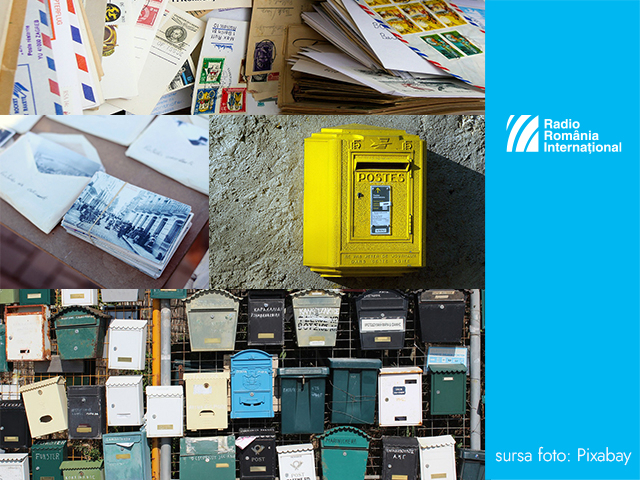Listener’s Day on RRI
Contributions from our listeners

România Internațional, 07.11.2022, 18:39
Best wishes on the celebration of November 6. As a listener to your station from as early as the 1970s, I find your broadcast quite unique and enchanting. Now I am very old, nearing ninety. But I never fail to listen to you through my iPad not less than five days a week. To be true for authenticity of news of Europe I listen to you and b.b.c. Your coverage of the Ukrainian war is commendable for it’s unbiased nature. Because of my age, I couldn’t type all my appreciation for your station. It is a pleasure to convey my best wishes to all of you on the Listeners Day and on Radio Romania day on 6 November. Best wishes to you all! Let us pray for the end of war in Ukraine. Lovingly, your very old listener. (Alangiasundaram Vela)
My family and I live in Kyiv. My family fled to Poland but I decided to stay here. As radio amateur I had ability to listen to all frequencies. I listened to conversations of military aircraft pilots who flew just above my head. I listened to conversations of local radio amateurs, territorial defense and police, and of course, many broadcasting stations on LW, MW and SW bands. Radio Romania was also perfectly audible on short waves. Only a few sources can give an idea of the situation. I received information directly from acquaintances in different parts of the country, read on the Internet in different languages and from different countries. And even Russian propaganda could give some information for comparison. How can you identify fake news from real news? This is very difficult and often not possible at all. But comparing information from different sources and confirming it with people on the ground makes it possible. You can often understand that you hear fake news by the style in which information is presented, by translation errors or inaccurate names. This often depends on the source. There is very little chance of hearing the truth in Russian or from a Russian source. Since my safety directly depends on this, it is very difficult to deceive me lately.However, the beginning of the spread of disinformation can often speak of upcoming events. In conditions where there are power outages, Internet or mobile communications, any receiver with the ability to operate on batteries (including car receivers) and receive on LW, MW and SW can become the only source of information. I have experienced this personally several times. (Volodymyr Gurtovy of Ukraine)
My main trusted sources of information about the war are the public radio and television, and their websites from the democratic countries mainly in Europe such as BBC of the UK, DLF of Germany, and RRI of Romania. Japan’s NHK is also reliable, but less informative about this war. It is very difficult to correctly identify fake news from real news. Basically, I do not care about information on social media networks, because the information through social media networks may be correct or may be incorrect. In social media networks, the information may be fake. Russia is absolutely to blame for this war, but since we are currently in a state of war, I do not trust any information either from Russia or from Ukraine. Ultimately, I have no choice but to believe information from the democratic countries in Europe. I do not think I am vulnerable to disinformation, but I am not quite sure. So, I try not to simply believe information coming from dictatorial and non-democratic countries. I do not include shady news sources in my list in the first place, but if the source is later found to be fake, I remove it from the list. As I live in Japan, it is difficult for me to realise this war as my own. International radio stations especially those from Europe give me a more vivid picture of this war and broaden my thinking. (Teruhiko Kachi, Japan)
Radio was and still is my first source of information. I never watch television! But I must add that reading articles online has taken a place that has grown steadily in recent years, especially since the Covid crisis. The consultation of online information sources has continued to grow in importance with the War in Ukraine, if only to look for additional information or to verify what has been heard on the radio. We have to admit that the online machine translation is a great progress: keeping in mind that it is an automatic translation, nevertheless, it is now possible to consult articles written in a language that we do not understand. An infox, by definition, is a false information, propagated if possible massively, in order to mislead readers, listeners or TV-watchers. But the sources propagating Fake News skilfully surround them most often with true information, verifiable because the source is sometimes given. And it is from this moment on that one can become unconsciously vulnerable! Protecting yourself from Fake News requires a real effort consisting not only in diversifying your sources of information but also in verifying the information. And this is where things get complicated because very often, and this is human, each one of us lets himself be locked in his own convictions! Moreover, the verification of information is particularly difficult because very often, the same source – a press agency for instance – is taken up by many media which do not have the possibility of having their own correspondent on the spot. And it is not because a piece of information is duplicated dozens of times that it is reliable. The media machinery is then perceived as a single homogeneous whole, which makes it suspect. Moreover, those who have witnessed an event are often the most critical of the media that report it. More and more citizens are turning away from the media, especially young people, to turn to social networks, which are real sounding boards for fake news. Personally, I don’t use any social network, which decreases my vulnerability and avoids wasting time reading lies! I think that in Romania, as in France and elsewhere, the big media have set up a Checknews, Fact checking, AFP Factual, etc. to detect Fake News. The journalists who work there recommend referring to official sources such as government sources. This is true. But we all know that as far as the Russian-Ukrainian war is concerned, many official sources are lying! For some sociologists, Fact checking is naive and its effectiveness would be very marginal. In war, the first victim is the truth! (…) certain sources of information are in collusion with the authorities in place or with the companies that finance them, directly or through advertising. As a result, the media that citizens trust deliver biased information or deliberately ignore the subjects that make people angry! However, I did not remove any media from my list because there would not be many left! Besides, when I have time, I compare what the media stamped Fake News propagators say about an important event. Indeed, the place that is given to a piece of information in a newspaper, the way of talking about it (the words used), the extracts chosen when a political personality speaks for example, etc. are very revealing of the objectivity, the neutrality, the independence of a media and its journalists. In a democratic country where freedom of the press is normally guaranteed, the media and journalists observe deontological and ethical principles. However, it should not be forgotten that all journalists select, prioritize and draft the information they will present in all journalists select, prioritize and draft the information writing, on the microphone or in front of the cameras. The reporter selects and formats information for an audience of readers or listeners. And for listeners, beyond the words used, the intonation will also be important. So, whether it is true or false, the wording of a statement will strongly influence the way it is perceived by those who receive it. (Paul Jamet, of L’Isle-Adam, France)
I have been listening to Radio Romania International for many years. Recently in your broadcast you have asked what sources I use for information on the war in Ukraine. Honestly when it comes to reports on any conflict I am sceptical of any information presented. War reports are often affected by the news agencies perspective of the war. However, I have always looked to the BBC world service, although they no longer broadcast on shortwave to North America, so they are a hard catch where I live. Since the beginning of the conflict I have been tuning into your broadcast and Radio Prague and occasionally Radio Slovakia. In the United States there is lots of coverage of the war, however I am more interested in what the neighbouring countries to Ukraine report. I have been listening to shortwave for over 30 years, however international broadcasters in English to North America have been disappearing. I have watched Sky news and France 24, more so at the beginning of the war. And I subscribe to The New York Times, which has been my primary source of information on the war in Ukraine. Many thanks for your broadcasts. (Warren Lambing, USA)
The year that is drawing to an end will go down in history as the year when humanity got out of the Covid pandemic, but also the year when the bloody conflict in the heart of Eastern Europe started. I believe that later, from the distance of historic perspective, historians will link these two events and will draw conclusions, in a world that will be completely different. Russia’s aggression against Ukraine is taking place against the background of an unprecedented propaganda and disinformation campaign. Here, in Russia, everybody was told to call the war started in February a special operation, under the threat of arrest or even criminal prosecution. Also, the use of the words war and peace are banned, because they discredit the Russian army. And I’m serious, according to the latest laws, adopted by the Russian parliament, it is considered an crime and punished with a big fine, or even imprisonment. I get information about the war from my dear motherland from safe sources – online radio, including the website of Radio Romania International. I can easily distinguish disinformation from real news, so I don’t see myself as vulnerable to disinformation. On the other hand, many people from Russia, and not only, believe in fake news and spread fake news. They could be convinced that they are wrong, but not always, and it can be dangerous, because they have been convinced that what they read and hear every day is true. (Contributor from Ukraine)
I am glad to participate in 2022 Listeners’ Day. You were asking how I relate with the fake news on Ukraine. I ignore it. And I am not talking only about the news coming from Russia, but also from German sources. Not a single day goes by without an article I find on the internet about some so-called specialists in Russian matters or individuals close to the Kremlin tell us how sick Vladimir Putin is. Or, if he is not sick of cancer or other terminal disease, then the Russian generals are distancing from him, or that the last left in his entourage are leaving him. When I opened my computer 10 minutes ago, I read: Russian expert: Putin will disappear in less than a year. After such a title, it’s clear that the article is a close subject to me. Reading further would be a waste of time. Unfortunately, this is a characteristic of today’s journalism: what the author or what the newspaper, the TV or radio station wants, is presented as reality. There is no research behind it, the facts don’t matter. (..) that is why I resort to serious sources. The most important to me is radio, and here I would like to mention the BBC World Service. In Berlin we are lucky to be able to listen to in on FM. Almost from the very first day of the war, the BBC has had correspondents in all theaters of operation in Ukraine, and also in Moscow. Moreover, Vitaliy Shevchenko from the BBC monitoring service has constantly covered what the Russia media’s been saying about war and debunked it. So, the number one is definitely the radio, the BBC World Service in particular. (Ernst Meinhatdt, Germany)
I suppose we have been shocked by the brutality of the Russian military aggression against Ukraine. Thousands of people – both soldiers and civilians – have been killed or maimed for life and the country has suffered enormous destruction. It all resembles war crimes not seen in Europe since World War II.
The media of course play a most important role in informing us about what happens day by day. I get most of my information from the Swedish public service broadcaster – Radio Sweden – and other international radio stations like the BBC, Radio France International and Radio Austria International. Radio Romania International has also been a source of information. These stations all have correspondents in Russia and Ukraine who report on events and the development of the war.
Public service media always state if their news items have been verified as being correct. If not, they state that it has been impossible to verify the veracity of certain statements or accounts of events. Truth is one of the first victims in a war or conflict. Statements made by Russian government officials can be rejected as they have almost always turned out to be complete false. Russian leaders have excelled in lying to the public both at home and abroad. I don’t really think that I am that vulnerable to disinformation as I stay away from all kinds of social media as they cannot be trusted. In times of crisis the public service radio and TV stations are of paramount importance in providing correct and reliable information and the same goes for those international broadcasters who are free from government control and run by independent journalists (Christern Brunström, Sweden)
I am one that does not listen too close to news that is happening in our country or internationally. In our country the news is usually what our government wants us to hear. It’s not that i do not care, but I can not do anything about it. It hurts me when I do hear something such as the war going on in the Ukraine and the refugees fleeing to other countries. There is also the aliens from South American countries crossing illegally into our country. I am not happy with our government with the way it is being run. There is a lot of things happening out there which I do not agree with. I can’t identify the fake news from the real. I do not hear from reliable sources. I do listen to your station Radio Romania Int. often. I enjoy the English language transmissions.I have been a short-wave listener since 1963. I know how great short-wave listening used to be. (Larry Nelson, US)





























